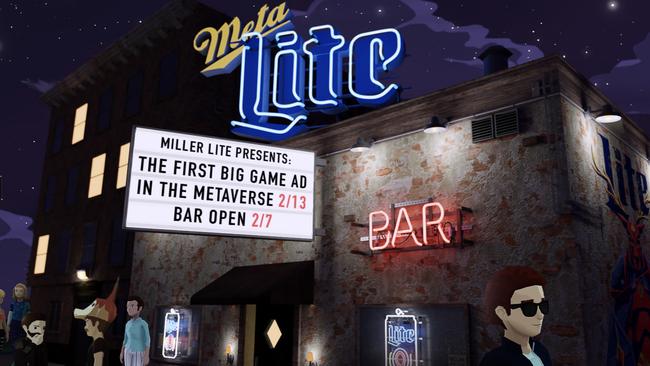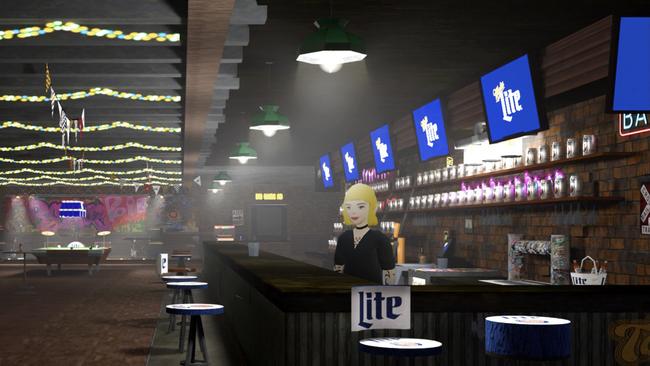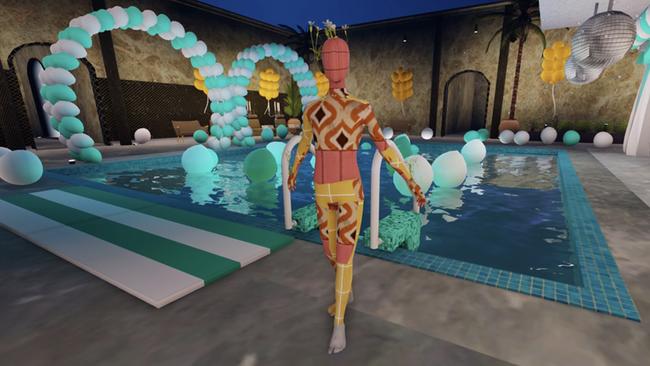Fancy a virtual beer? Marketers explore metaverse worlds
Well-known brands including Miller Lite and Gucci have planted flags in the virtual world, showing that marketers are seeing the potential for new revenue streams in the metaverse.

Marketers looking to connect with consumers in the virtual world have been exploring two popular metaverse platforms.
Well-known brands including Miller Lite and Gucci have planted flags in the Sandbox and Decentraland, platforms where digital real estate has sold for millions of dollars.
The metaverse is a term for virtual worlds where people can play games and attend events via a digital avatar. To showcase their brands to consumers in these worlds, marketers buy or rent digital space from the platforms or third parties, including a growing crop of metaverse development companies that have acquired desirable locations.
Marketers also see potential for new revenue streams in the metaverse, such as renting digital land that they own to other brands or selling digital collectibles known as nonfungible tokens, or NFTs, to consumers.
The Sandbox has a higher concentration of celebrities and well-known brands, which might attract further marketers, while Decentraland provides more opportunities to experiment and build worlds, said Lewis Smithingham, director of creative solutions at Media.Monks, a marketing services agency owned by S4Capital.
Because the platforms are still nascent and building out features, it might be some time until any real successes occur, said Joseph Flaherty, director of content and community at Founder Collective, a venture-capital firm.
“It just takes years and years of compounding the advantages, figuring out how all this stuff works,” Mr. Flaherty said.
Molson Coors Beverage Co. promoted its Miller Lite brand in a campaign around this year’s Super Bowl by opening Meta Lite Bar, a virtual tavern, on a digital parcel in Decentraland. It rented the space from TerraZero Technologies Inc., a metaverse development company, for an undisclosed amount.
At the Meta Lite Bar, patrons could pour themselves a virtual beer, chat with other users and play a preselected tune from a jukebox. Patrons could also pick up Miller Lite digital NFTs such as a “Meta Lite” T-shirt for their avatars, the company said.
Molson Coors chose Decentraland partly because it offered the ability to restrict who entered the bar by age and its accessibility via desktop browser, said Sofia Colucci, global vice president for the Miller brands. The company declined to share how many visitors came to the bar, but it said those who did stayed for an average of 20 minutes.

Decentraland said it has about 600,000 users a month. In October, it hosted the Metaverse Festival, a four-day music event with performances by Deadmau5 and Paris Hilton.
Decentraland’s proven ability to hold large-scale events is one of its appeals, according to Andrew Kiguel, executive chairman of Metaverse Group, a metaverse development company.
In November, Metaverse Group, a subsidiary of Tokens.com Corp., bought about 6000 square feet in Decentraland’s fashion district for about $2.5 million. The fashion district will be the primary venue for Decentraland’s Metaverse Fashion Week in March with brands such as Tommy Hilfiger participating.
Brands including JPMorgan Chase & Co., Sotheby’s, and Samsung Electronics America have also set up promotional locations in Decentraland.
“Decentraland’s open standards means that anyone can build an experience with no need for permission, and companies own their [intellectual property] on our platform,” said Sam Hamilton, creative director of the non-profit Decentraland Foundation, which builds tools for the platform and handles its marketing.
The Sandbox, which is a subsidiary of Animoca Brands Corp., is still in a testing phase, scheduled to open to the public for six temporary stretches this year, the company said. Its first temporary opening, held last year from Nov. 29 to Dec. 20, drew more than 200,000 users, the company said.
The Sandbox said it raised $93 million in November in a Series B funding round led by SoftBank Group Corp. The Sandbox is popular with celebrities and entertainment brands, with musical artists Snoop Dogg and Deadmau5 owning parcels of land there. Other landowners include Gucci and the organization behind Bored Ape Yacht Club, a popular NFT depicting cartoon apes.

Brands can generate revenue by selling NFTs on the Sandbox and Decentraland. For example, Snoop Dogg is offering an animated decoration called “Snoopverse Early Access Pass” for 525 Sandbox cryptocurrency tokens, known as Sand. That translated to $1,732.50 as of 3pm. ET Tuesday. Decentraland also has its own cryptocurrency, Mana, for transactions on its platform.
Sebastien Borget, co-founder and chief operating officer of the Sandbox, said brands are entering the metaverse to engage with customers and create more immersive, fun and social experiences.
The visual style in the Sandbox is similar to that of Minecraft, the popular video game owned by Microsoft Corp., said Janine Yorio, chief executive of Everyrealm, a metaverse content and development company that bought about 3 square miles in the Sandbox for $4.3 million in November.
“As the users of Minecraft grow up and age out, they’ll have a familiarity with that visual style, so I think that was a very smart move on the part of the Sandbox to have that vox-related look,” Ms. Yorio said, referring to the Lego-like characters and landscape in the video game.
Industry observers expect most metaverse platforms won’t expand the land in their worlds, to maintain a sense of security among landowners. The finite amount of space to buy and rent makes it potentially necessary to experiment in the metaverse now, said Media.Monks’ Mr. Smithingham.
“You’re buying people’s attention now and the price for that is really, really, really high,” he said. “And so provide value, provide meaning, provide things of interest, and people will come to your thing — that’s ultimately where this whole Sandbox and Decentraland thing will ultimately play out.”
This article first appeared in The Wall Street Journal


